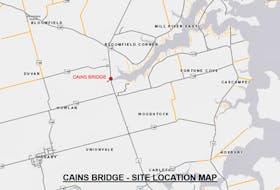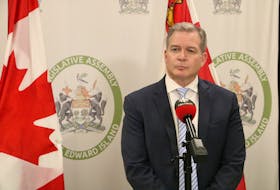The Canada Emergency Response Benefit (CERB) is being expanded to include workers who make less than $1,000 a month.
Prime Minister Justin Trudeau on Wednesday announced the new eligibility criteria for the CERB, a taxable benefit of $2,000 every four weeks for up to four months for eligible workers who have lost income due to the COVID-19 pandemic.
Previously, the CERB was available only to those who lost all of their income, which left many Canadians ineligible or forced them to choose between their dramatically reduced income or the benefit.
“Maybe you're a volunteer firefighter or a contractor who can pick up some shifts, or you have a part-time job in a grocery store. Even if you are still working or want to start working again you probably need help making ends meet,” Trudeau said Wednesday.
“So if you earn $1,000 or less a month you'll now be able to apply for the CERB.”
The new criteria also applies to anyone who is self-employed.
Seasonal workers, artists included

Additionally, the CERB is being expanded to include seasonal workers who have exhausted their employment insurance (EI) regular benefits and are unable to undertake their usual seasonal work as a result of the COVID-19 outbreak, and to workers who have exhausted their EI regular benefits since Jan. 1 and are unable to find a job or return to work due to the pandemic.
In an emailed statement, Fisheries Minister Bernadette Jordan said the expansion to include seasonal workers will specifically target those in the seafood sector.
“I will continue to work with my colleagues to ensure that every Canadian, especially the hard-working women and men of our fisheries, has the support they need right now,” she said.
Artists who have a copyright for work completed before the COVID-19 crisis will not have to include that work in applications for the CERB.
“In these difficult times it is the artists who help us continue to dream and who put a little sunshine in our daily lives,” Trudeau said. “We appreciate what they do.”
Seniors' home staffing
In addition to the expanded CERB criteria, Trudeau announced plans to work with Finance Minister Bill Morneau as well as Canada’s premiers, who will meet via teleconference Thursday evening, to temporarily boost wages for essential workers who are making less than $2,500 a month.
Trudeau said this is in response to concerns about the staffing crisis in seniors’ homes across the country.
“We all need to do better. We all need to take leadership for the seniors who’ve built this country,” Trudeau said.
Expanding on the wage top-up during a later news conference, Employment Minister Carla Qualtrough said these essential workers will include those working in hospitals, assisted living care facilities, senior and long-term care homes, and more.
More specific details on both the CERB expansion and the wage top-up for essential workers will be announced in the coming days.
Trudeau also said more help for post-secondary students will be announced soon.
Cautious optimism
"in recent days we've observed a doubling time of over 10 days, which means the epidemic is slowing down,”
- Dr. Theresa Tam

Chief Public Health Officer Dr. Theresa Tam said Wednesday that even as the number of COVID-19 cases and deaths continue to rise, Canada’s latest epidemiological data is cause for cautious optimism.
Because COVID-19 is very contagious, even a few cases can quickly multiply, resulting in a steeply rising epidemic curve with case numbers doubling every few days, Tam explained. This type of increase is known as exponential growth.
“In late March, when the growth rate was the fastest, we saw case numbers doubling every three days, but in recent days we've observed a doubling time of over 10 days, which means the epidemic is slowing down,” Tam said.
Although everyone wishes this could mean a spring to the finish line, Tam said it’s a marathon, and current measures must remain in place for the foreseeable future.
“Coming down from this epidemic curve will be like making our way down a mountain in the darkness. We mustn't rush or let go of our safety measures or the fall will be hard and unforgiving,” she said.
As COVID-19 is an emerging disease with many unknowns, each new step needs to be made with the utmost care and certainty, Tam said.
She said public health officials will continue to closely monitor cases and growth trends to ensure Canada has the right measures in place to detect and quickly respond to any new cases or clusters.
“We will also need to maintain physical distancing during this time. Any break in our resolve could spark a new outbreak and delay our progress,” she said. “Let’s maintain our collective resolve and crush this curve.”
Also on Wednesday, Health Minister Patty Hajdu announced new online mental-health supports for Canadians who need them as a result of the COVID-19 pandemic.
“Many people are struggling with fear, anxiety and loneliness not being able to use our regular support networks or even practice our regular routines,” Hajdu said.
The new mental-health portal, called Wellness Together Canada, can be accessed at canada.ca/coronavirus or via the Canada COVID-19 app. It includes different tools for a range of mental-health concerns, from anxiety and sadness to substance abuse.
The tools include an online peer support community, self-help resources and the option of being connected via text or video to a professional to address a specific need.









